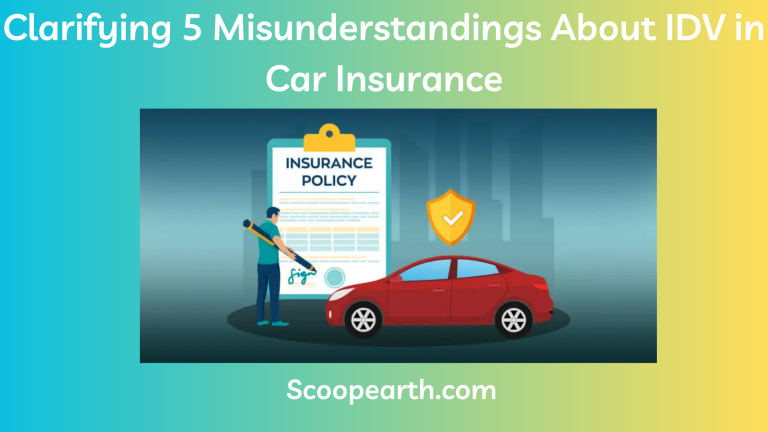Introduction:
The convenience of having your own vehicle for commuting is unmatched. The easy availability of loans has made it easy to purchase the IDV in Car Insurance of your dreams. That being said, insuring your vehicle is equally important.
Car insurance is compulsory for all car owners, and driving without one is punishable by law. The jargon used in car insurance documents can be confusing, and one terminology that you will constantly see throughout the policy document is Insured Declared Value (IDV).
IDV is essentially the maximum amount that you will receive in case your car is damaged beyond the point of repair or gets stolen. It also dictates the premium that you have to pay to the car insurer. Increasing the value of your IDV increases the premium amount marginally and vice versa. You can make use of the IDV calculator to calculate the market value of your vehicle as well as the insurance premium amount.
It is important to keep in mind that IDV plays a role only if you have comprehensive car insurance. Third-party insurance holders will not benefit from an IDV in any way. There are a lot of myths surrounding IDV in car insurance. In this article, we attempt to bust 5 such myths so that you can get a better understanding of IDV.
Myth 1: IDV is the current market value of your vehicle
A lot of people tend to believe that the IDV that is mentioned in the policy document is the current price of the vehicle in the market. This is far from the truth as the IDV will always be lower since there is a factor of car depreciation rate.
All vehicles depreciate with time. In fact, the minute you drive your car out of the car showroom, it depreciates by 5%. On the other hand, when it comes to computing the market value of the car, there are several factors that have to be taken into consideration. These include the performance of the car, resale value, etc.
Myth 2: IDV is the maximum amount you claim in a year
This is another major misconception pertaining to IDV, which is not true as well. You might think that you can claim only up to the IDV’s value in a year, but you can actually make an unlimited number of insurance claims in a year.
In case a single claim goes more than 75% of the IDV of your vehicle, then the car insurance provider will assume that is a complete loss situation. In such a situation, you are eligible to claim the entire IDV value as compensation.
Myth 3: The insurer sets the IDV
The IDV is computed according to the guidelines that are published by the Insurance Regulatory and Development Authority of India (IRDAI). The insurance provider also offers the customers the option of increasing or decreasing the IDV of their vehicle within a limit of +/- 10% of the actual value.
When the vehicle gets older by 5 years, there are no fixed guidelines for setting the IDV. After this point, the IDV is decided upon based on a mutual agreement between the customer and the insurer.
Myth 4: If you declare a higher IDV value, the resale value for your car will be better
It is advisable to declare a value higher than the actual IDV value. As mentioned above, the market value of your car is not based solely on its IDV. There are various other factors that influence this value. The resale value of a vehicle is based on its current market value. Therefore, you might not end up saving as much as you expected by declaring a higher IDV value.
Moreover, you have to pay a higher car insurance premium by doing so. The right approach would be choosing the IDV value that is closest to the actual figure of the car by adjusting the invoice price for depreciation.
Myth 5: You should decrease the IDV of the car to save on premiums
It is not a wise idea to declare a lower IDV to save some money on premiums. IDV is the maximum limit that you will receive from the insurance provider as compensation for a situation that is considered a total loss event. Therefore, if you declare a lower IDV value, you will get a lower compensation than the actual value of the car. Therefore, you will lose a lot in an effort to save a little.
In case you have plans to renew or buy car insurance in the near future, it is important that you clear all your doubts pertaining to IDV. This will ensure that you make the right choice and avoid any mistakes. Make sure to conduct thorough research on the internet or reach out to the insurer before you buy a car insurance policy.


0 Comments